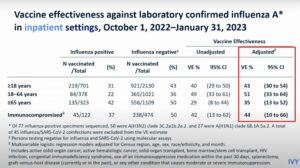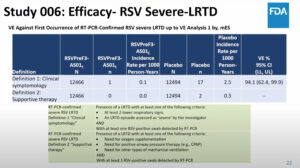NEW YORK (Reuters Health) – Measuring procalcitonin levels, which are relatively high with bacterial versus viral infections, can help reduce antibiotic use in treating respiratory tract infections, according to a report in the Archives of Internal Medicine for October 13.
Although usually of a viral etiology, acute respiratory tract infections are the number one reason for antibiotic use in primary care settings, study co-author Dr. Beat Mueller, from University Hospital Basel, Switzerland, and colleagues note. Procalcitonin testing has been proposed as a method of guiding therapy, potentially reducing the use of this costly intervention.
The current study featured 458 patients with a respiratory tract infection who were randomized to receive antibiotics based on procalcitonin levels or on the discretion of the treating physician. With the procalcitonin approach, antibiotics were recommended only if the levels exceeded 0.25 micrograms/L.
Disease outcomes, including the rate of ongoing or relapsing infection at 28 days, were not significantly different in the two groups, yet the antibiotic prescription rate in the procalcitonin approach group was 72% lower than in the control group.
“This trial suggests that as an adjunct to guidelines, procalcitonin-guided therapy can markedly reduce the use of antibiotics for acute respiratory tract infections in primary care without compromising patient outcome,” Dr. Mueller’s team concludes.
“In view of the current overuse of antimicrobial therapy for often self-limiting respiratory tract infections, our findings may have important clinical and epidemiological implications.”
Reference:
Arch Intern Med 2008;168:2000-2007.




